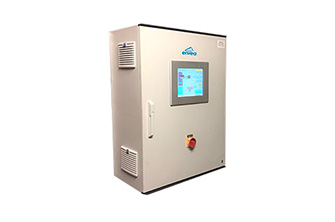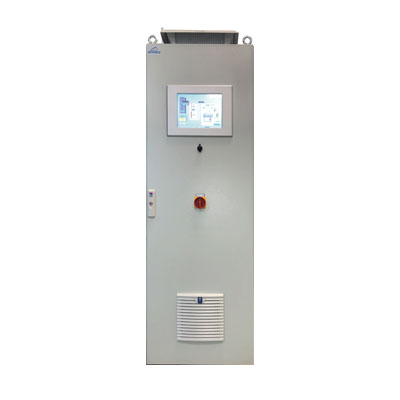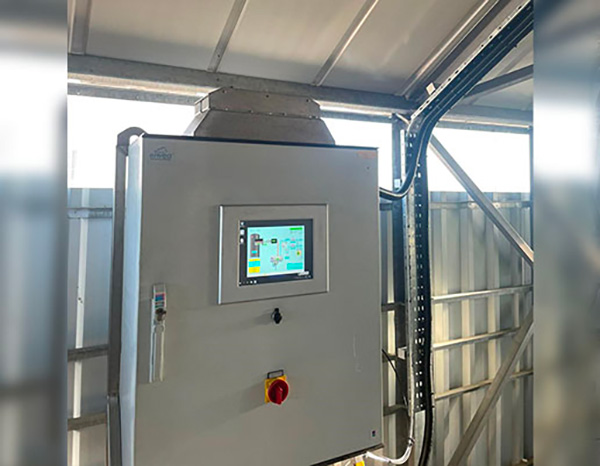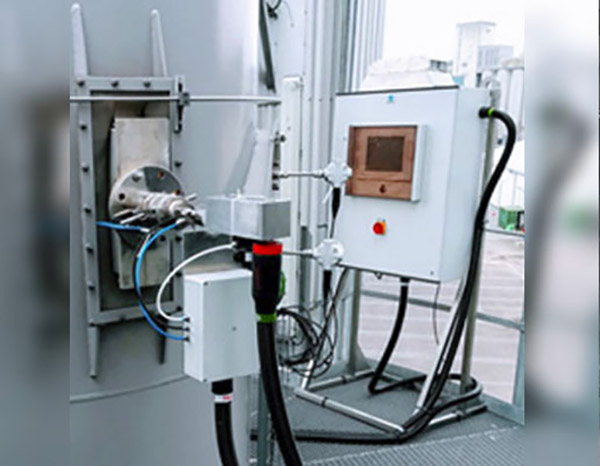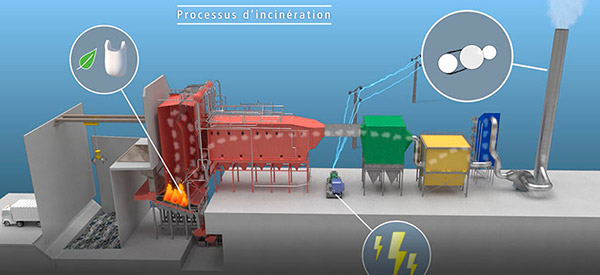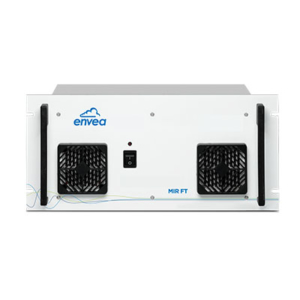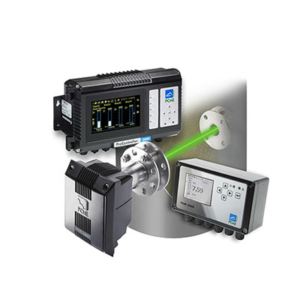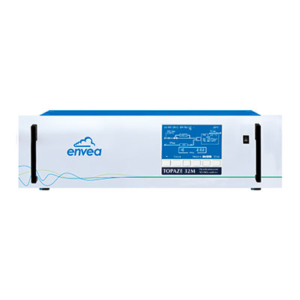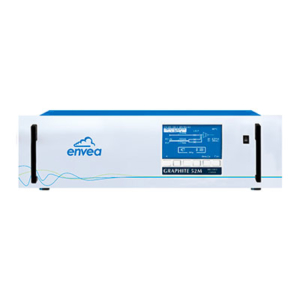Dioxins & Furans Permanent Sampler
Continuous dioxin and furan emission monitoring by long-term sampling. TÜV and MCERTs certified, ETV EPA approved and in accordance with Standards EN 1948-1, CEN/TS 1948-5
The AMESA-D utilizes the water cooled probe method with Isokinetic sampling system coupled with XAD-II adsorbent cartridge for Long-term sampling of dioxins (PCDD), furans (PCDF) and other persistent organic contaminant (POPs).
+ 20 years of expertise
+ 40,000 dioxin analysis
+ 400 AMESA® installed in waste incinerators, cement, power plants, etc.
- Features & Benefits
- Main applications
- Technical Specification
- Technical Data
- Approvals & Certifications
- Downloads
- Isokinetic sampling by a built-in Pitot tube on the sampling probe
- Automatic continuous sampling of dioxins in stack from 4 hours to 6 weeks (programmable)
- Adsorption on exclusive XAD-II cartridge
- Dioxins of all 3 phases (gaseous, solid and liquid bounded) are collected in one cartridge
- High efficient dust filter
- Fully automated and sampling operating conditions storage
- Cooled probe composed of different materials and lengths to fit the application
- Household waste incinerators
- Special waste incinerators
- Hospital waste incinerators
- Thermal power plants
- Cement plants
- Metallurgy plants
- Paper mills, etc.
| Technical Specifications | |
|---|---|
| Measuring range | 0.0001–10 ng I-TEQ / m³ (QAL1 certification range: 0–0.5 ng I-TEQ / m3) |
| Sampling interval | from 6 hours up to 6 weeks |
| Flue gas temperature | up to 70˚C without cooling / up to 400˚C with cooling |
| Max dust concentration in the flue gas | 100 mg/m3 |
| Flue gas velocity | from 1 up to 30 m/s |
| Operating temperature (control cabinet) | +5 to + 40˚C (optional air conditioner for temperatures over +40˚C) |
| Max relative humidity (control cabinet) | 50% |
| Isokinetic control cycle | 1 sec |
| Velocity measurement accuracy | ± 1 % of measuring range |
| Volume measurement accuracy | ± 1.5 % of measuring range |
| Capacity of internal memory | (optional) half hour average values up to 7 months |
| Multiplexing | (optional) up to 2 sampling points |
-
- Length: from 350 up to 2000 mm
- Probe shaft diameter: 60 mm
- Free probe tip diameter from 3 up to 12 mm (mainly 5 and 6 mm)
- Stack mounting: DN 100 flange (other flanges upon request)
- Material: titanium (glass as an option)
Sampling unit
Standard unit
-
- dimensions: 600×600×220mm(H×W×D)
- Weight: approx. 32kg
- Adsorbent cartridge: XAD-2
Control cabinet
- Dimensions: 1800 × 600 × 500 mm (H × W × D) / for multiplex version 2000 x 800 x 600 mm (H x W x D)
- Weight: approx. 185 kg / for multiplex version approx. 250 kg
- Compressed air: 3 to 7 bars, dry, oil free
- Compressed air connection: 8×1 or 6×1mm hose
- Cooling water: 0.5 to 5l/min (accord. to fume temperature) / (absolutely essential for fume temperature >70˚C, Optional closed loop cooler if tap water not available)
- Water connection: 1/2” hose (inlet & return)
- Power supply: 230VAC, 50Hz (option 115V, 50/60Hz)
- Power consumption: Control cabinet: approx. 0.85 kW; Control cabinet with side wall air conditioner: approx. 1 kW; Cartridge box: 0,25 kW
- Fuse: Control cabinet: 16 A / Cartridge box: 6 A
- Automatic multiplexing (up to 2 sampling units)
- Sampling probe cooler
- USB flash drive
- XAD II cartridge- transportation box for XAD II cartridge
- Integrated non heated dust filter for separate analysis of particle
bounded dioxins and gaseous dioxins - AMESADAT software to read the sampling protocol from the USB flash drive
- AMESA-SV remote monitoring software via TCP/IP connection or wireless router
Before the QAL 1 certification the AMESA® system passed several Type Performance Tests and certifications as follows:
- In 1997, the patented AMESA® system successfully passed a Type Performance Test carried out by TÜV Rheinland (No: 936/808017A 12.8.1997) according to the EU notified minimum requirements for long-term sampling systems (EU notification 97/26/D).
Therefore AMESA®was published in the German Joint Ministerial Gazette (GMBl, 13 January 1998, page 10) issued by the Federal Ministry of the Environment, Conservation and Reactor Safety (BMU). - In 2002, AMESA® obtained the TÜV Approval according to the TUVdotCom regulations (TUVdotCom-ID: 0011005400, type approval no. 936/805017B).
In addition to the performance test, such an approval included already a yearly audit by TUV similar to the later published EN 15267, which assures that the actual AMESA® systems produced conform to the test requirements during the performance test. - In October 2005, after a 3-month field trial and laboratory tests, AMESA® received the MCERTS-certification (no. Sira MC 050064/00), based on the “MCERTS Performance Standards and Test procedures for Automatic Isokinetic Samplers Version 2”.
All measurement devices of AMESA®, which are needed to assure a correct sampling, (volume measurement, isokinetic control, temperature and pressure measurement etc.) were very intensively tested during the TÜV and MCERT tests, thus ensuring a perfect calculation of the average dioxin concentration over the sampling time.
The most relevant tests are those related to the adsorption characteristics of the system (e.g. possible break-through of dioxins through the cartridge, possible losses of dioxins in the sampling line and condensate etc.), which are exclusively performed in the more stringent QAL1 and TÜV type performance test.
QAL1 certificate:
